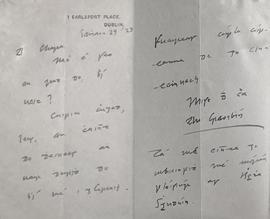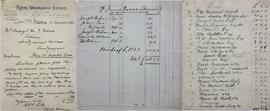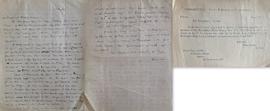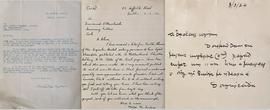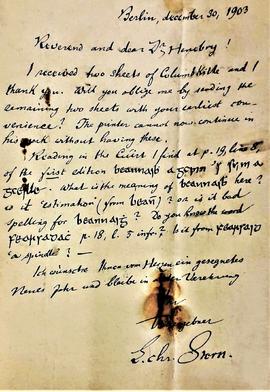A volume (Browne’s Whole Page Diary for 1948) containing drafts of outgoing letters written by Fr. Henry Anglin OFM Cap. The volume contains letters to: John English Ltd., printers, Sr. Mary Anastasia MMM, Fr. Michael Glynn, Joy Walda, A.J. O’Reilly, Arthur M. Campbell, Robert Ostermann, Daphne Pochin Mould, Alison King, ‘Simon Pederek’, J.R. Bainbridge, Doran Hurley, Thomas F. McNamara, Fr. Sylvester O’Brien OFM, Kenneth MacGowan, Edward Daly, Donal O’Cahill, Fr. Francis X. Dent, Sean Neeson, Most Rev. Patrick Collier, Bishop of Ossory, Most Rev. James Moynagh, Fr. Christopher Crowley OFM Cap., Rockwell Newman, Fr. Aquinas Carroll OFM Cap., Most Rev. David Mathew, Rev. David Mathew, Rev. David O’Driscoll, Fr. Brian Browne OFM Cap., Beatrice McCahill, Rev. Aubrey Gwynn SJ, Clare Thornton, Seamus MacManus, D.L. Kelleher, Michael J. Lennon, K.M. Murphy, Richard J. King, Diarmuid Breathnach, Jean Norton, Beda Herbert, James Rice, Fr. Colga O’Riordan OFM Cap., Fr. Carthage Ruth OFM Cap., Desmond Cryan, Basil Clancy, Rev. Anthony J. Cleary, Most Rev. Charles H. Helming, Fr. Aidan McGrath, John Nagel, Vincent J. Walker, Dr. Joseph Szoverffy, Fr. Terence Connolly SJ, Rev. Patrick Rogers, Rev. T.J. Walsh, and Fr. Nessan Shaw OFM Cap.

